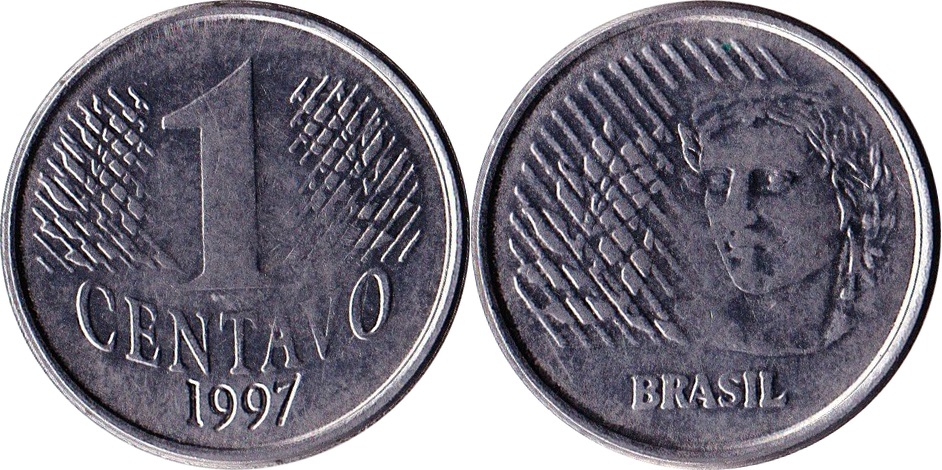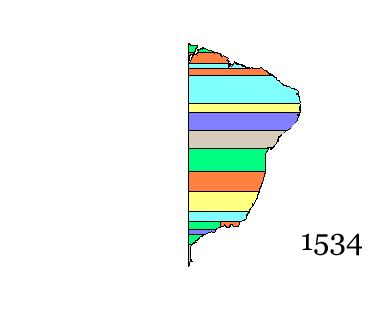|
Jerônimo Rodrigues
Jerônimo Rodrigues Souza (born 3 April 1965), also known mononymously as Jerônimo, is a Brazilian indigenous politician, agricultural professor, and bureaucrat who was elected Governor of Bahia in 2022 election. Winning against ACM Neto in an upset, Jerônimo, a professor at State University of Feira de Santana, became the first self declared indigenous governor in the history of Brazil. He previously served as an advisor in technology to Governor Jaques Wagner, as an advisor to the Rousseff government, and as head of multiple ministries in the government of Rui Costa, rising through the ranks of governmental management. He is a member of the Workers' Party. Early life Born in Palmeirinha, a village in the municipality of Aiquara, to Zeferino Rodrigues, a farmer, and Maria Cerqueira, a seamstress, Jerônimo attended public school in Jequié and received a masters degree in rural development from the Federal University of Bahia in 1991. Bureaucratic career ... [...More Info...] [...Related Items...] OR: [Wikipedia] [Google] [Baidu] |
2022 Bahia Gubernatorial Election
The 2022 Bahia state election took place in the state of Bahia, Brazil on 2 October 2022. The elections saw voters choose a Governor and Vice Governor, one Senator, 39 representatives for the Chamber of Deputies, and 63 Legislative Assembly members. The incumbent Governor, Rui Costa, of the Workers' Party (PT), was not eligible for a third term since he ran for governor in 2014 and 2018. In a significant upset, PT nominee and Secretary of Education Jerônimo led Mayor of Salvador ACM Neto in the first round of elections despite the vast majority of registered opinion polls indicating the leadership or even outright victory of Neto. In the end, Jerônimo obtained 49.45% of valid votes to ACM's 40.8%; less than a percentage point within of winning the election in the first round. Nevertheless, as no candidate obtained a majority of the vote, there will be a second round election on October 30 2022. In the election for Federal Senate from the state of Bahia, incumbent Senator ... [...More Info...] [...Related Items...] OR: [Wikipedia] [Google] [Baidu] |
Mapa Do 2º Turno Da Eleição Para Governador Na Bahia Em 2022
Mapa or MAPA may refer to: People * Alec Mapa (born 1965), American actor, comedian and writer * Dennis Mapa (born 1969), Filipino economist and statistician * Jao Mapa (born 1976), Filipino actor * Placido Mapa Jr. (born 1932), Filipino businessman, economist, and government official * Suraj Mapa (born 1980), Sri Lankan actor * Victorino Mapa (1855–1927), Filipino chief justice and government official Other uses * "Mapa" (song), a 2021 song by SB19 * Mexican American Political Association * Mapa (publisher), an Israeli subsidiary of Ituran * Mapa Group, a Turkish conglomerate * Mapa, a company producing latex gloves that merged with Hutchinson SA in 1973 * Most Affected People and Areas, a climate justice concept See also * * Mappa (other) is a Japanese animation studio headquartered in Suginami, Tokyo. Founded in 2011 by Madhouse (company), Madhouse co-founder and producer Masao Maruyama (film producer), Masao Maruyama, it has produced anime works i ... [...More Info...] [...Related Items...] OR: [Wikipedia] [Google] [Baidu] |
Brazilian Real
The Brazilian real (plural, pl. '; currency symbol, sign: R$; ISO 4217, code: BRL) is the official currency of Brazil. It is subdivided into 100 centavos. The Central Bank of Brazil is the central bank and the issuing authority. The real replaced the Brazilian cruzeiro real, cruzeiro real in 1994. As of April 2019, the real was the twentieth most traded currency. History Currencies in use before the current real include: * The ''Portuguese real'' from the 16th to 18th centuries, with 1,000 ''réis'' called the ''milréis''. * The ''Brazilian real (old), old Brazilian real'' from 1747 to 1942, with 1,000 ''réis'' also called the ''milréis''. * The ''Brazilian cruzeiro (1942–1967), first cruzeiro'' from 1942 to 1967, at 1 cruzeiro = 1 ''milréis'' or 1,000 ''réis''. * The ''Brazilian cruzeiro novo, cruzeiro novo'' from 1967 to 1970, at 1 cruzeiro novo = 1,000 first cruzeiros. From 1970 it was simply called the ''Brazilian cruzeiro (1967-1986), (second) cruzeiro'' and was u ... [...More Info...] [...Related Items...] OR: [Wikipedia] [Google] [Baidu] |
Landslide Victory
A landslide victory is an election result in which the victorious candidate or party wins by an overwhelming margin. The term became popular in the 1800s to describe a victory in which the opposition is "buried", similar to the way in which a geological landslide buries whatever is in its path. What constitutes a landslide varies by the type of electoral system. Even within an electoral system, there is no consensus on what sized margin makes for a landslide. Notable examples Argentina * 2011 Argentine general election – Cristina Fernández de Kirchner of the Front for Victory won a second term as President of Argentina in a landslide victory. She received 54.11% of votes, while no other candidate received more than 16.81%. Australia State and territory elections: * 1989 Queensland state election – Wayne Goss led the Labor Party to a historic landslide victory over the Country Party (later known as the National Party) led by Russell Cooper. The Country Party had been in ... [...More Info...] [...Related Items...] OR: [Wikipedia] [Google] [Baidu] |
Antônio Carlos Magalhães
Antônio Carlos Peixoto de Magalhães (4 September 1927 – 20 July 2007), also known by his initials ACM, was a Brazilian politician. He served as Governor of Bahia three times and represented Bahia in the Senate of Brazil three times. Magalhães was one of Brazil's most powerful politicians serving as a Minister for Communications, as Leader of the Liberal Front Party (PFL) and as President of the Federal Senate. Early life and career Magalhães was born in 1927 in Salvador, Bahia. His paternal grandparents were Portuguese. Magalhães went to medical school. His political career started at the age of 27 when he entered the Bahia state legislature. He was soon elected to the federal Chamber of Deputies, where he served three terms. At first he was a protégé of Juscelino Kubitschek, who was then the President of Brazil. Political power broker Magalhães supported the military coup that overthrew President João Goulart. He was appointed Mayor of Salvador and then as the Go ... [...More Info...] [...Related Items...] OR: [Wikipedia] [Google] [Baidu] |
Rural Development
Rural development is the process of improving the quality life and economic well-being of people living in rural areas, often relatively isolated and sparsely populated areas. Rural development has traditionally centered on the exploitation of land-intensive natural resources such as agriculture and forestry. However, changes in global production networks and increased urbanization have changed the character of rural areas. Increasingly rural tourism, niche manufacturers, and recreation have replaced resource extraction and agriculture as dominant economic drivers. The need for rural communities to approach development from a wider perspective has created more focus on a broad range of development goals rather than merely creating incentive for agricultural or resource-based businesses. Education, entrepreneurship, physical infrastructure, and social infrastructure all play an important role in developing rural regions. Rural development is also characterized by its emphasis o ... [...More Info...] [...Related Items...] OR: [Wikipedia] [Google] [Baidu] |
Jequié
Jequié is a city in the state of Bahia, Brazil. Jequié is 365 km away from Salvador Salvador, meaning "salvation" (or "saviour") in Catalan, Spanish, and Portuguese may refer to: * Salvador (name) Arts, entertainment, and media Music *Salvador (band), a Christian band that plays both English and Spanish music ** ''Salvador'' ( ..., in the Southwest region of Bahia. It is nicknamed "Cidade Sol", meaning "The Sun City" because of its high temperatures. Surrounded by mountains, the city suffers with the heat during the whole year. On summer days, the temperature can reach 48 °C. Jequié is rich on Iron Ore, so it is very hot during the day, and cold at night. It is also known as "Chicago Baiana". Gallery Image:Praça da bíblia.jpg, Obelisk of Jequié Image:Jequié.JPG, Road Support of Jequié References Municipalities in Bahia {{Bahia-geo-stub ... [...More Info...] [...Related Items...] OR: [Wikipedia] [Google] [Baidu] |
Rui Costa
Rui Manuel César Costa (; born 29 March 1972) is a Portuguese former professional footballer who is the 34th president of sports club S.L. Benfica. He also succeeded Luís Filipe Vieira as president of the club's SAD board of directors. Regarded as one of the best midfielders in world football and one of Portugal's best players of all time, Costa usually played as an attacking midfielder and was particularly known for his excellent technique, playmaking ability, and eye for goal from midfield. In 2004, he was named by Pelé in the FIFA 100 as one of the 125 greatest living football players. Nicknamed "The Maestro" and "Il Musagete" ( The leader of Muses), Costa spent the majority of his career with Benfica in Portugal and Fiorentina and AC Milan in Italy. In a top-flight career spanning 17 years, he won several trophies, including one Primeira Liga title, one Taça de Portugal, one Serie A title, three Coppa Italia, one UEFA Champions League and one UEFA Super Cup. A Po ... [...More Info...] [...Related Items...] OR: [Wikipedia] [Google] [Baidu] |
Jaques Wagner
Jaques Wagner (born 16 March 1951) is a Brazilian politician who was Governor of Bahia from 2007 to 2015 and Minister of Defence in 2015. Wagner, whose parents were Jewish immigrants from Poland, was born in Rio de Janeiro in 1951. In his youth, he was a member of the Labor Zionist youth organization Habonim Dror. He was a founding member of the Workers' Party (PT), as well as the Central Única dos Trabalhadores (CUT), a union which has organized more than seven million members. He won reelection in the 2010 Bahia gubernatorial election. Since 2019, he serves as a Senator A senate is a deliberative assembly, often the upper house or chamber of a bicameral legislature. The name comes from the ancient Roman Senate (Latin: ''Senatus''), so-called as an assembly of the senior (Latin: ''senex'' meaning "the el ... for the state of Bahia. References External linksJaques Wagner - Candidato a reeleição - Governador da BahiaJaques WagnerReeleição Jaques Wagner ... [...More Info...] [...Related Items...] OR: [Wikipedia] [Google] [Baidu] |
History Of Brazil
The history of Brazil begins with indigenous people in Brazil. Europeans arrived in Brazil at the ending of the 15th century. The first European to claim sovereignty over Indigenous lands part of what is now the territory of the Federative Republic of Brazil on the continent of South America was Pedro Álvares Cabral (c. 1467/1468 – c. 1520) on 22 April 1500 under the sponsorship of the Kingdom of Portugal. From the 16th to the early 19th century, Brazil was a colony and a part of the Portuguese Empire. The country expanded south along the coast and west along the Amazon and other inland rivers from the original 15 donatary captaincy colonies established on the northeast Atlantic coast east of the Tordesillas Line of 1494 (approximately the 46th meridian west) that divided the Portuguese domain to the east from the Spanish domain to the west, although Brazil was at one time a colony of Spain. The country's borders were only finalized in the early 20th century. On 7 September 18 ... [...More Info...] [...Related Items...] OR: [Wikipedia] [Google] [Baidu] |



